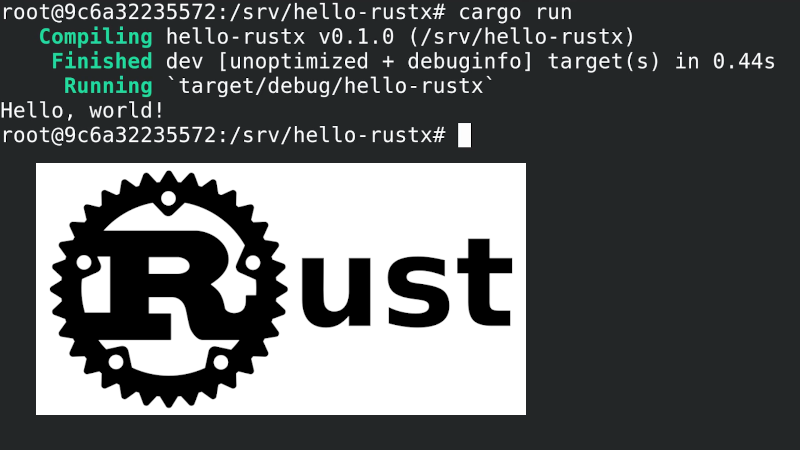Rust programming language
April 23, 2021The Rust programming language is a modern, fast, high-level and safe programming language. What are its advantages and how to get started?

The Rust programming language is a young programming language with interesting features,
that give it the potential for success. And for some purposes, it is downright suitable,
so you can use it to efficiently solve the task at hand.
Moreover, it is compatible with the existing C library ecosystem,
so it can be used well alongside existing solutions.
Rust language features:
- both high-level and low-level
- fast as C
- can be used to call common Linux libraries written in C
- enables parallel programming
- supports threading
- full UTF support
- safe
- translation to native code
- anonymous features
- better error listing during translation
- has package system Cargo
Details on the history of Rust
As the number of users and the community around the Rust language grows, so does the ecosystem, so that by 2021, there may be jobs available and with this technology build a career.
Packaging System
Since the number of libraries is already growing, it's a good idea to address their management somehow, and that's what the package system is for. For the Rust programming language ecosystem, the packaging system is cargo. You can find a list of searchable Rust library packages on the https://crates.io/
How to start programming in Rust
If you want to start programming in Rust, you'll need some tools - primarily a compiler.
I've prepared a docker image here,
which is available on github.
If you use this image, you can compile programs written in Rust.
There is a compiler - the rustc command.
And also cargo, which is a package management tool that you can use to deal with library installation efficiently.
The cargo program, allows you to create projects in the Rust language, compile your project or install extensions to the language
Rust.
Make a local clon git repository with docker configuration that allows you to prepare a tool container for Rust.
git clone https://github.com/josefjebavy/rust-example-docker
Build docker image:
docker build ./ -t rust
Starting the container:
docker run -it -v ${PWD}:/srv rust /bin/bash
Sample hello word code:
fn main() {
println!("Hello, world!");
}
Create a project using cargo, compile and run it:
cargo new hello cd hello cargo run ./target/debug/hello
Compilation started directly by calling the compiler and running
rustc src/main.rs ./main
Video tutorial Rust
Here is a video tutorial on how to prepare your development environment for programming in Rust
and a basic demonstration of creating a program:
The Future of the Rust Programming Language
Rust, thanks to its features, has, in my opinion, a great chance to become more widely used over time. Moreover, it has a chance to replace C. So, combining these two features with the fact that it has already caught on in important projects, I think it's going to be one of the most widely used programming languages in the future.
Links
Rust installation documentation
How to get started with Rust
Docker hub Rust
Articles on a similar topic
How to speed up the web
Rector: upgrade PHP application
Go programming language
Analysis of assignment and pricing of software project development
Python program to control Docker using the API
How to use MailCatcher to test emails
Python OpenAI API
Creating a WebSocket web application and setting up a proxy
Project management: agile software development
How to run old PHP applications
What a good programmer should know
NodeJS: development, server configuration
Nette security bug CVE-2020-15227
REST API: platform API
Custom web and mail hosting with ISP Config software
Programming in SQL: PostgreSQL, MySQL/MariaDB
HTTPS: secure web
NoSQL database Mongo DB
Connecting to Microsoft SQL Server from Linux
What is the job description of a programmer
Python application localization
Which mail and web hosting to choose
Digispark - Program Atmel ATtiny microcontroller with Arduino IDE
Development for ARM processors with Arduino IDE
How to program the ESP8266 WiFi processor
What platform should I choose for my e-shop? For example, Prestashop
OpenStreetMap and GPS routes in the map on the web
Open smartphone with Linux - Openmoko Neo FreeRunner
Newsletter
If you are interested in receiving occasional news by email.
You can register by filling in your email
news subscription.
+





